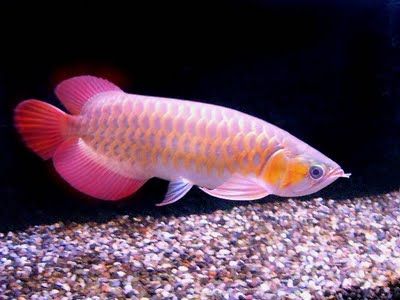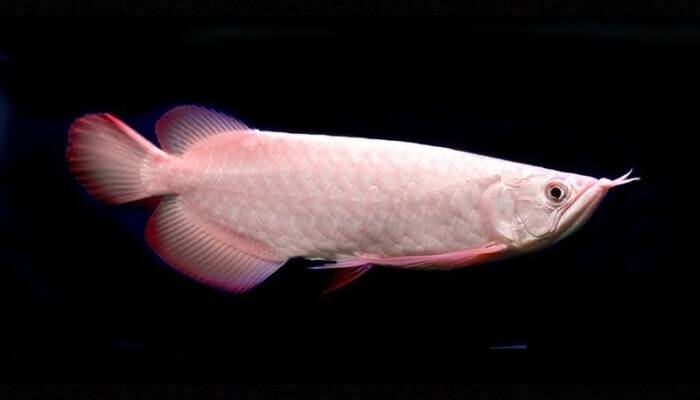Description
Red Tail Golden Arowana for Sale – The Crown Jewel of Exotic Fish
At Ranch Of Exotic Breed, we take pride in offering some of the most exquisite and rare aquatic creatures to enthusiasts and collectors. Among our prized collection, the Red Tail Golden Arowana stands out as a symbol of elegance, power, and prosperity. Known for its striking appearance and majestic presence, this fish is a must-have for any serious aquarist or exotic pet lover.
If you’re looking to add a touch of luxury to your aquarium, our Red Tail Golden Arowana for sale is the perfect choice. In this article, we’ll dive into everything you need to know about this magnificent fish, including its features, care requirements, and why it’s a prized possession for collectors worldwide.
The Red Tail Golden Arowana is a rare and highly sought-after freshwater fish known for its vibrant golden scales and striking red tail. Often referred to as the “Dragon Fish,” it symbolizes wealth, luck, and power in many cultures. At Ranch Of Exotic Breed, we offer healthy, premium-quality Arowanas that are carefully bred and raised in optimal conditions. Each fish comes with a health guarantee and detailed care instructions to ensure it thrives in its new home.
Why Choose the Red Tail Golden Arowana?
Stunning Appearance: The redtailed golden asian arowana boasts shimmering golden scales and a vibrant red tail, making it a centerpiece in any aquarium.
Symbol of Prosperity: In Feng Shui and Asian cultures, the Arowana is believed to bring good luck, wealth, and positive energy.
Rarity and Exclusivity: This species is rare and highly valued, making it a prized addition to any collection.
Long Lifespan: With proper care, Arowanas can live up to 20 years or more, making them a long-term companion.
Care Guide for Red Tail Golden Arowana
Owning a Red Tail Golden Arowana is a rewarding experience, but it requires commitment and proper care. Here are some essential tips to ensure your Arowana thrives:
Tank Requirements:
Arowanas need a spacious Fish tanks for sale (minimum 250 gallons) to accommodate their large size and active nature.
Ensure the tank has a tight-fitting lid, as Arowanas are known to jump.
Water Conditions:
Maintain a water temperature between 75°F and 86°F.
Keep the pH level between 6.5 and 7.5.
Regularly test and maintain water quality to prevent ammonia and nitrate buildup.
Diet:
Arowanas are carnivorous and thrive on a diet of live or frozen foods such as shrimp, crickets, small fish, and worms.
Supplement their diet with high-quality pellets to ensure balanced nutrition.
Tank Mates:
Arowanas are territorial and should be housed with larger, non-aggressive fish.
Avoid keeping them with smaller fish, as they may be seen as prey.
Health Monitoring:
Regularly inspect your Arowana for signs of stress or illness, such as loss of appetite, discoloration, or unusual behavior.
Consult a vet specializing in exotic fish if you notice any health concerns.
Frequently Asked Questions (FAQ)
1. How much does a Red Tail Golden Arowana cost?
The price of a Red Tail Golden Arowana varies depending on its size, age, and quality. At Ranch Of Exotic Breed, our Arowanas range from
500
t
o
500to2,000 or more for premium specimens.
2. Is the Red Tail Golden Arowana suitable for beginners?
While Arowanas are stunning, they require experienced care due to their specific tank requirements, diet, and sensitivity to water conditions. We recommend them for intermediate to advanced aquarists.
3. Can I keep multiple Arowanas in the same tank?
Arowanas are solitary and territorial by nature. Keeping multiple Arowanas in the same tank can lead to aggression and stress. If you wish to keep more than one, ensure the tank is extremely large and well-structured with hiding spots.
4. How big do Red Tail Golden Arowanas grow?
Red Tail Golden Arowanas can grow up to 36 inches (3 feet) in length, making them one of the largest freshwater fish species.
5. Do you ship Red Tail Golden Arowanas?
Yes, we offer safe and secure shipping options for our Arowanas. Each fish is carefully packed and shipped with a live arrival guarantee.
6. What is the lifespan of a Red tail golden arowana for sale?
With proper care, Red Tail Golden Arowanas can live for 15 to 20 years or more, making them a long-term commitment.
7. Are Arowanas legal to own?
Arowanas are regulated in some regions due to their endangered status. Ensure you check your local laws before purchasing. At Ranch Of Exotic Breed, we comply with all legal requirements and provide necessary documentation.
Why Buy from Ranch Of Exotic Breed?
Premium Quality: Our Arowana fish for sale are bred and raised in optimal conditions to ensure they are healthy and vibrant.
Expert Guidance: We provide detailed care instructions and ongoing support to help you care for your Arowana.
Health Guarantee: Each fish comes with a health guarantee, giving you peace of mind with your purchase.
Wide Selection: We offer a variety of Arowanas, including rare and exclusive specimens.
Conclusion
The Red Tail Golden Arowana is more than just a fish; it’s a statement of elegance, power, and prestige. At Ranch Of Exotic Breed, we are committed to providing our customers with the highest quality Arowanas and exceptional service. Whether you’re a seasoned collector or a passionate aquarist, our Red Tail Golden Arowana for sale is the perfect addition to your exotic pet collection.
Ready to own a piece of aquatic royalty? Contact us today to learn more about our available Arowana for sale and take the first step toward bringing home this majestic creature. Don’t miss out on the opportunity to own one of nature’s most breathtaking creations!
Call to Action:
Visit our website or call us at +1 (409) 745 – 6317 to inquire about our Red Tail Golden Arowana for sale. Elevate your aquarium with the ultimate symbol of luxury and prosperity!





Reviews
There are no reviews yet.